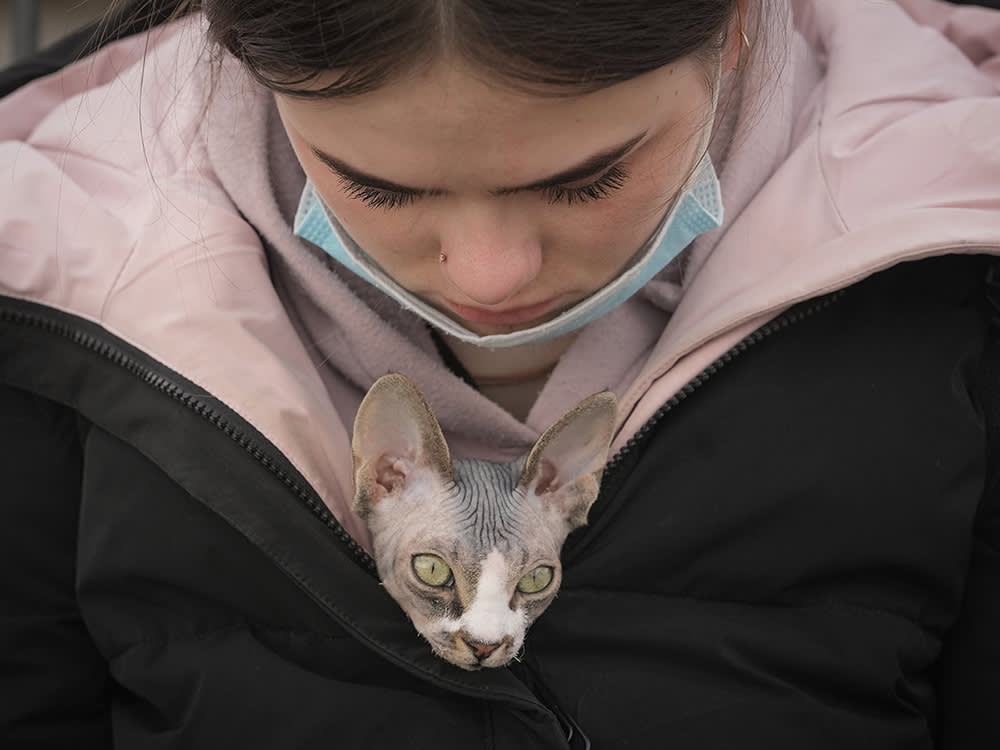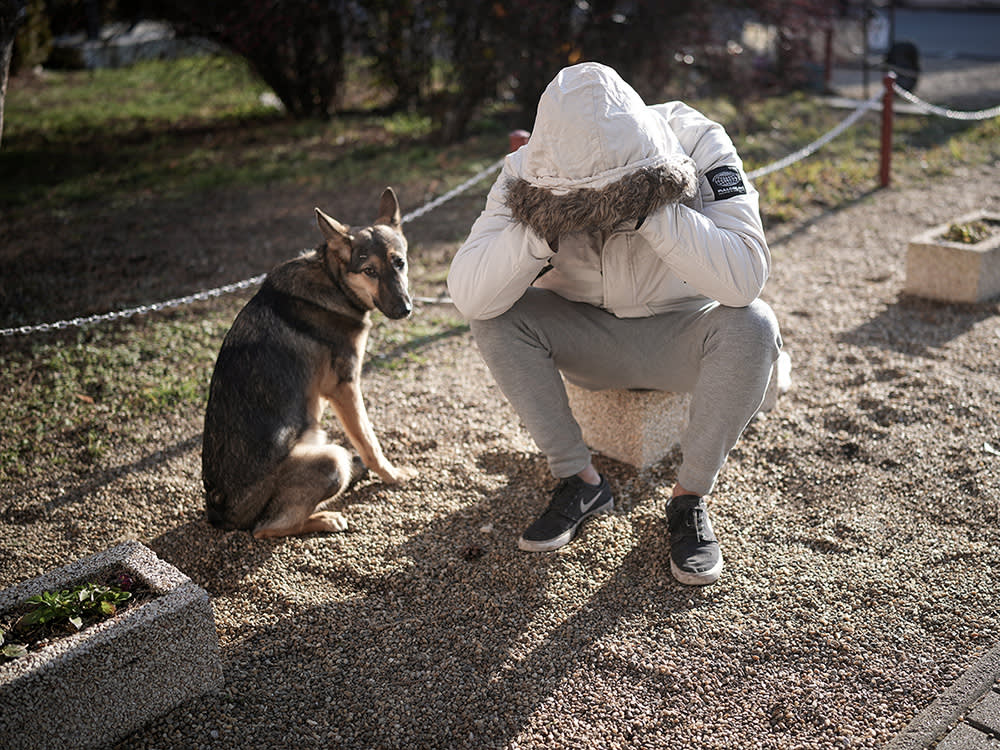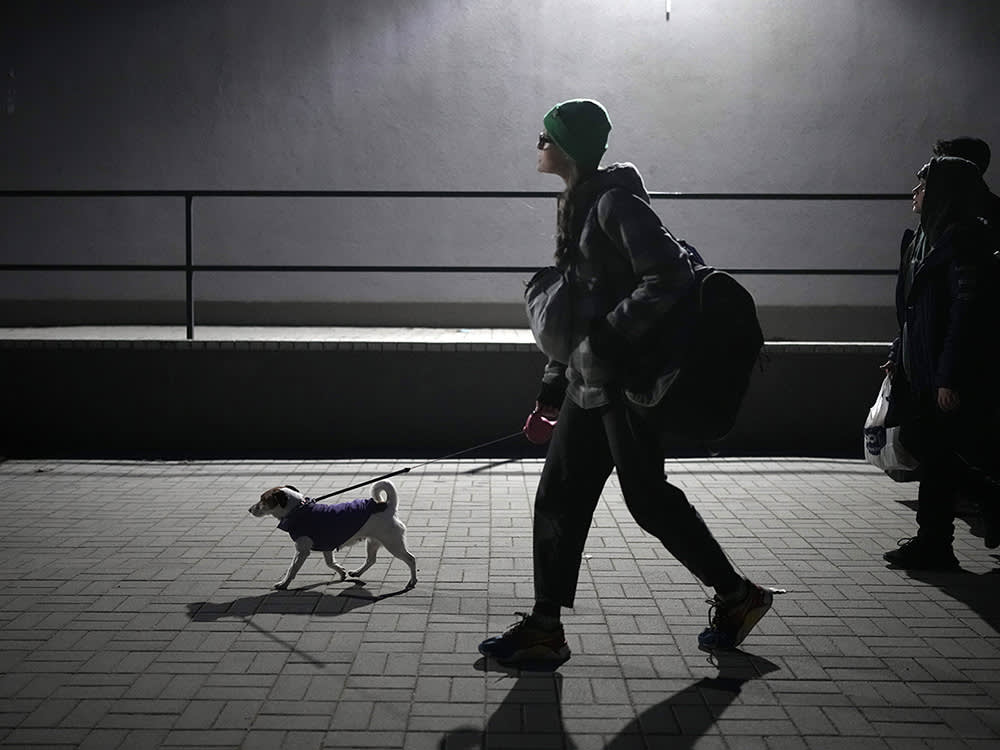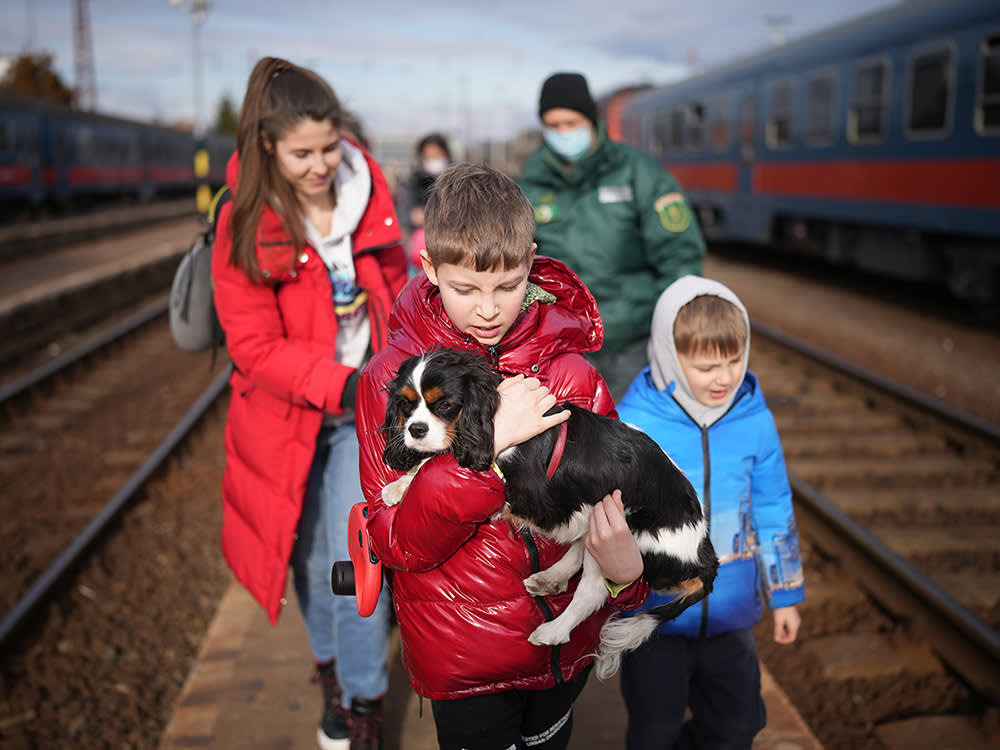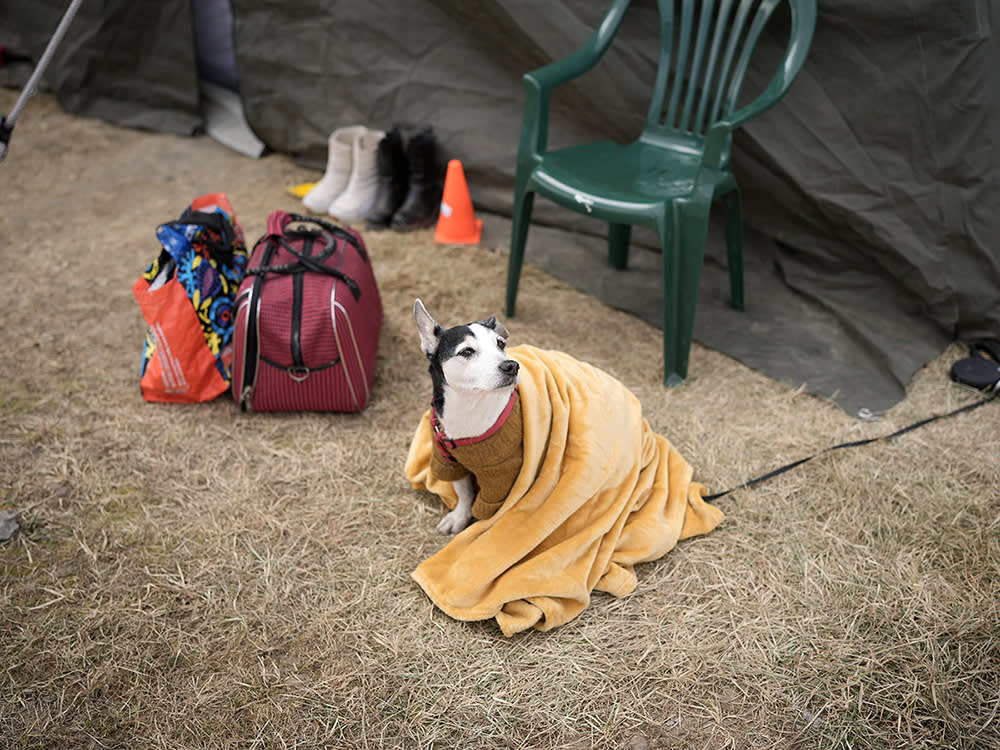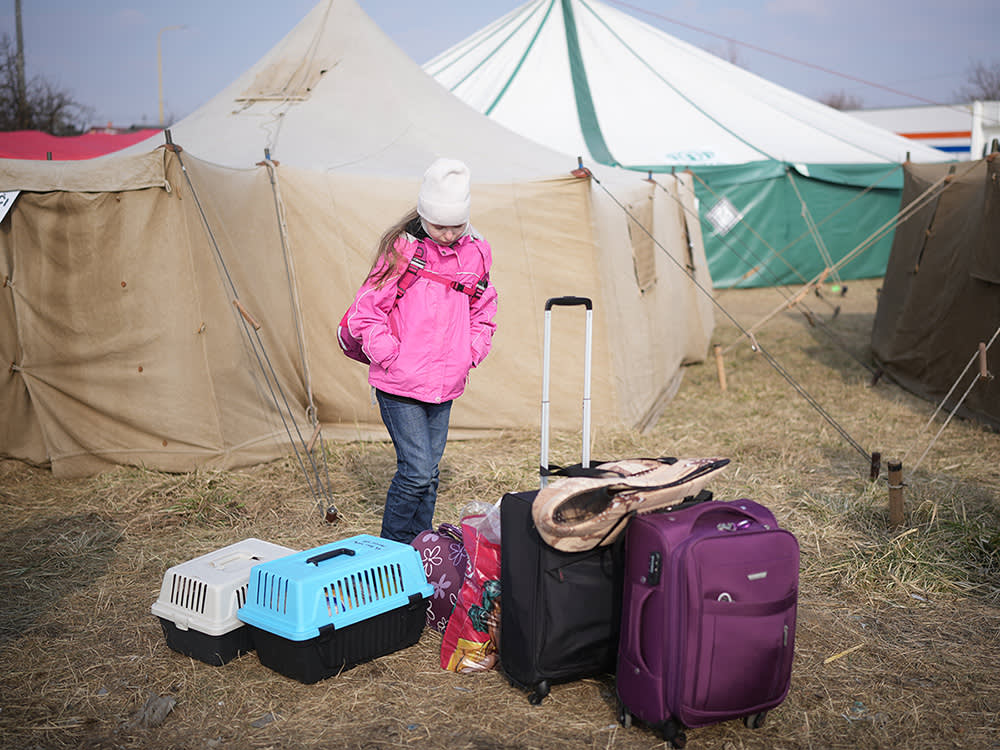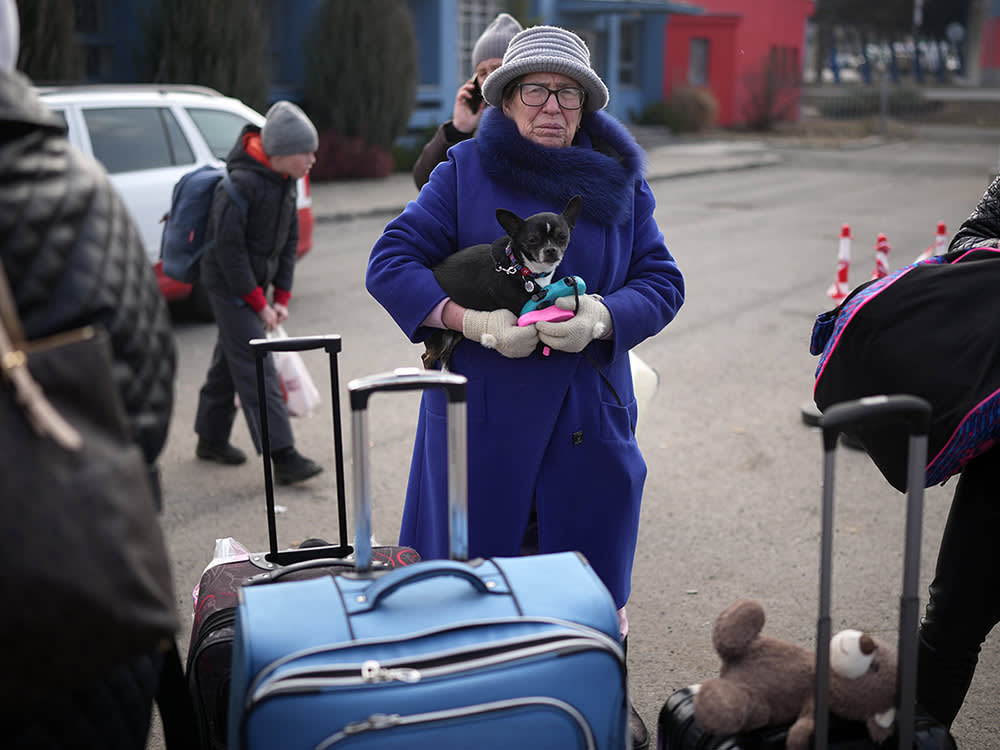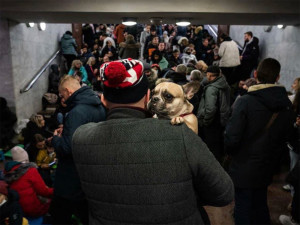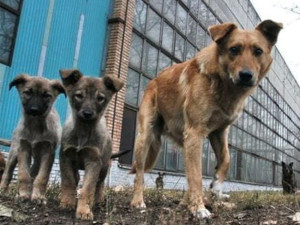Meet the Photographer Documenting Pets at the Ukraine Border
Christopher Furlong is helping fleeing pets and people tell their stories.
Among the images of refugees fleeing Ukraine, there’s one particularly heartbreaking visual of a young girl, her eyes downcast, with a dazed, wide-eyed cat peeking out of her thick coat. Getty staff photographer Chris Furlongopens in new tab snapped that photo in March 2022, at Slovakia’s Vysne Nemecke border-crossing — just west of Ukraine — in subfreezing weather.
“The cat is just huddled inside her coat, sitting there quite comfortably. But the poor girl is quite sorrowful,” recalls Furlong, who’s also documented refugees at the Hungarian borders. “Animals are very intuitive. They understand when humans are suffering. I wonder if the cat is reading the human like, ‘I need to stay calm. I’m a comfort animal at this point.’” Dogs, in kind, “seem to be particularly alert, whether that’s because they’re protecting their owners or because they are in different surroundings.”
In recent years, we’ve seen fleeting images of Syrian and Afghan refugees with their pets. We’ve also heard a few reports of organizations such as Kabul Small Animal Rescueopens in new tab, SPCA Internationalopens in new tab, and CatConnectopens in new tab helping to evacuate animals or reunite pets with their owners. Still, the exodus from Ukraine feels different. News outlets have been proactively documenting how a sizable percentage of the 6.3 million peopleopens in new tab who’ve fled their homeland — the vast majority women and children — is refusing to leave their pets behind. (The country has banned men aged 18 to 60 from leaving, in case it needs to call in reserves.)
“The one thing that struck me on the very first day I arrived in Hungary and witnessed refugees get off trains was how many dogs there were,” Furlong says. “Literally, for every twentieth person, there was a pet as well. A few local people confirmed to me that Ukrainians are a nation of dog lovers.” In addition to being adored members of the family, pets can also minimize stress and anxiety, according to the National Alliance on Mental Illnessopens in new tab.
How much do you spend on your pet per year?
Another moving photo taken by Furlong features Kyryl, a nine-year-old boy in a bright red puffy coat, intently carrying his Spaniel named Hugo across the Hungarian border after leaving Kyiv. “It seems as though he’s leading his whole family here, as if he’s taken on some sort of fatherly role. And he just looks like he’s in control. He’s got Hugo in his arms.”
In moments, Kyryl and his family were likely greeted by volunteer workers. Says Furlong: “One of the most interesting things I saw was, apart from the hundreds of volunteers and NGOs and organizations giving people food and clothing and warmth and hospitality, there were just as many pet charities there with tents for dogs, vets, pet food, dog cages. They were all there, waiting for the pets and their owners as they came across the borders. It was touching to see.”
The pet owners were greeted quite warmly because, Furlong explains, “a lot of the European governments had relaxed their rules regarding bringing animals into countries.” That said, most of those countries have been restrictingopens in new tab the number of pets per person, with some requiring a quarantine period. Foreign pet owners, however, will experience a much harder timeopens in new tab getting into America, due to federal health regulations.
Just how difficult was it capturing these people emerging from their darkest hours into an uncertain future? “I didn’t have an interpreter with me. But there was hardly any antagonism at all. I think the vast majority of people knew I was there for a reason, and I think they want to get their message across,” Furlong says. “You know, we like to tell the stories, whatever they are. We try just photograph exactly what we see. It’s never an easy job.”
